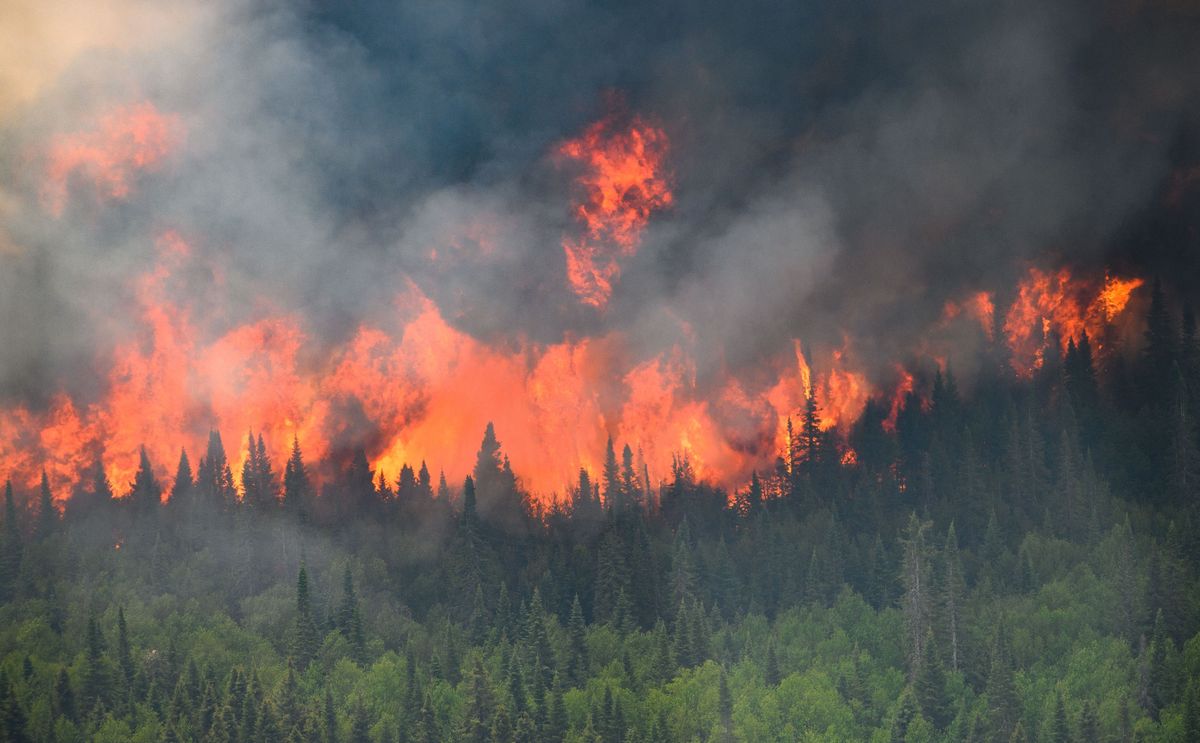Canada’s wildfires are again causing smoke-filled haze to descend, along with air quality alerts, in parts of the United States and beyond, with residents everywhere from Chicago to Europe breathing in some Canadian smoke. And it’s still June – fire season doesn’t end until September.
To better battle blazes on both sides of the border, Canada and the United States have signed an agreement to cut through the red tape and make it easier for their respective firefighters to fly to each other’s aid as needed. This also gives Canada access to US wildfire intel. Before this, cooperative efforts were dependent upon individual agreements, which slowed efforts.
As the earth’s climate gets warmer, the vast northern forests are getting hotter and drier, making fires more likely. Wildfire seasons are starting earlier and running longer, and the fires are getting bigger and more dangerous.
On Monday, the Canadian Interagency Forest Fire Centre reported that 76,129 square kilometers of forest and other land has already burned in Canada this year, beating a record set in 1989. More than 600 American firefighters have been able to come north to help this year because the US season did not get an early start, but they may soon be busy at home as American forests heat up.
President Joe Biden’s administration is spending billions to try to clean up forests choked with dead trees and undergrowth, but these efforts have fallen behind schedule, leaving hundreds of communities near federal forests at possible risk.
What’s worse, the Canadian fires have also hugely increased the emissions that cause climate change, sending 160 megatons of carbon into the atmosphere so far this year, according to Copernicus, a European Earth observation center.
Polling shows most Canadians believe climate change is at least partly responsible for the terrible wildfire season, and the majority believe the country is transitioning too slowly to clean energy. In the US, meanwhile, experts think that smoky air in big American cities may help change attitudes about the need for quick action to combat climate change.


















